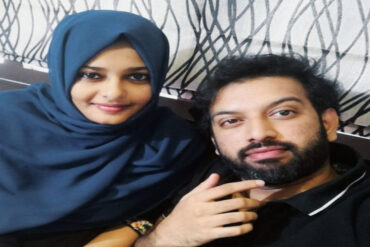Many years ago, I vaguely remember watching on Doordarshan a TV programme in which the sleuth, alerted by some noises inside a house, rings the doorbell pretending to be a postman. When the lady of the house appears, he slips a hand-written note to her in which he asks her if everything is fine. She takes a look at the paper and replies that all is okay, in writing. That’s enough for a discerning detective to smell a case there. As the investigator finds out later, the woman and her daughter were actually hostages in their own house whom he rescues.
Actor Zaira Wasim’s Instagram post announcing her retirement is much like the lady’s hand-written “okay” in the detective serial. It serves a purpose different than intended and raises more questions than answers. In her choosing to run a long and winding explanation to justify her decision lies the clue that needs deeper investigation.
Why did she take the trouble of penning the long post, when she always had the option to quit quietly by not taking up any new projects? Why the long-drawn-out explanations? Who is that note meant for— herself, her fans, or her trolls?
Youth & consequences
An award-winning actor, Wasim—Wikipedia be damned for already labeling her a “former Bollywood actress” even as her third film is on the verge of release–shot to fame with the blockbuster Dangal. After a scintillating performance in Secret Superstar, she will next be seen in her third film, The Sky is Pink, slated to release in October this year.
Anyone is free to quit one’s career at any point in life, and Wasim’s “personal choice” to give up acting because she saw it as “threatening her relationship with her religion” should not normally be anyone’s business. But she is only 18; and she is a Muslim—from Kashmir, no less—pursuing a career in the Khan-dominated Bollywood. Each of these elements of her identity makes her act of resigning a complicated affair. And, in choosing to make a public, written statement, she has, unwittingly perhaps, contributed in making her private decision a political issue.
A teenager throwing away a dream career can be the doings of a fickle young mind, and Wasim must be granted that—it is her right to quit any number of times she feels like. At 18, she has all the luxury to try new things, experiment, adventure, and even to make mistakes. She can take a break and go on a long holiday, with or without notice, for religious or secular reasons. So, there is every reason to support her. However, the respect for the personal should not come in the way of scrutiny that her statement demands and the politics of it.
Religion & radicalisation
Radicalisation is a word that is easily thrown about in the context of Muslims. But radicalisation is hardly a Muslim monopoly (as we know from the cellphone-totting, lynch-happy Hindutva gangs with Jai Sri Ram on their lips).
In 2016, a 13-year-old Jain girl was allowed to fast unto death in the name of religion. For 68 days that she fasted, her well-to-do parents dressed her as a goddess and worshipped her. Guests poured in their house and took selfies with the dying girl. Her parents said she wasn’t forced, that she was “religiously inclined” since childhood and that she chose Sallekhana, the Jain practice of “thinning out” or fasting to death.Religious indoctrination can take such extremes, and it must be treated with caution. This is true for all religions.
Wasim’s renouncing a coveted Bollywood career in itself does not merit accusations of radicalisation or indoctrination on her part—there’s no way of knowing that right now—but it shall be fair to note that those who have opposed her, who have viciously trolled her all along, are mostly radical ideologues, religious fundamentalists and hardliners. And it is in their language that Wasim has written her farewell letter; it is their argument that she has presented. This is deeply worrying.
Troll army’s dangal
Trolls can break the strongest, and Wasim is only 18. Forget the belligerence that social media veterans reserve to fight troll attacks, Wasim was always on the back-foot—self-critical and repentant—pleading for kindness in a place full of hatred, ruthlessness and cowardice. “I am just a 16-year-old girl and I hope you treat me accordingly. I am sorry for what I did but it was not deliberate decision and I really hope people can forgive me,” she wrote in a now-deleted open letter after her meeting with chief minister Mehbooba Mufti created a storm. She even said that she was not proud of what she was doing and that it would be a disgrace to treat her as a role model, and so on.
She has always been viciously trolled for pursuing a career in Bollywood, for being un-Islamic. A pertinent question to ask here is, would she have still quit if she had not faced such intense online abuse and bullying?
Wasim is not the first Kashmiri woman to draw flak for pursuing a career in arts and entertainment. In 2013, an all-girl Kashmiri rock band, Pragaash, was forced to disband after only one concert following online threats of death and rape and a religious fatwa from a Muslim cleric. They were also teenagers, like Wasim.
All this must be considered while looking at Wasim’s case—for her sake as much for the many Zaira Wasims of the future. In brushing aside any discussion on religious fundamentalism, and possible radicalisation, in the name of personal choice exercised by a legal adult, a great disservice in being done to the struggles of women trying to break free from the age-old patriarchal shackles imposed in the name of religion.
It is all good if Wasim has made an informed choice. But what if it is not? What if she succumbed to the unspeakable online hatred and fear, but is loath to admit? Her decision must be respected in either case, but this should not come in the way of critiquing her arguments, which are basically what the religious fundamentalists would have you believe.
This may be her personal view of Islam, but Quran being against women pursuing arts has been debunked already from many quarters, and Muslim women around the world have taken great strides in the field. This narrative should not be allowed to keep coming back.
Will the Khans of Bollywood step forward?







